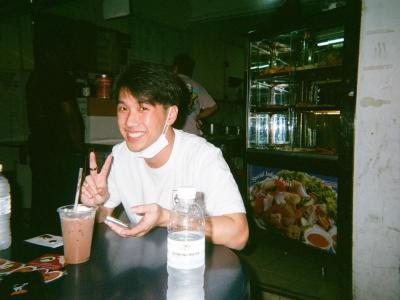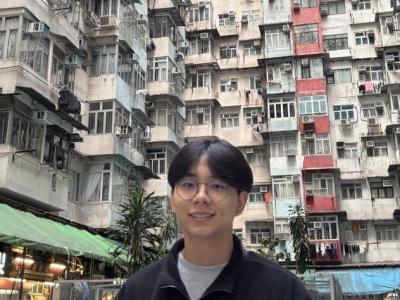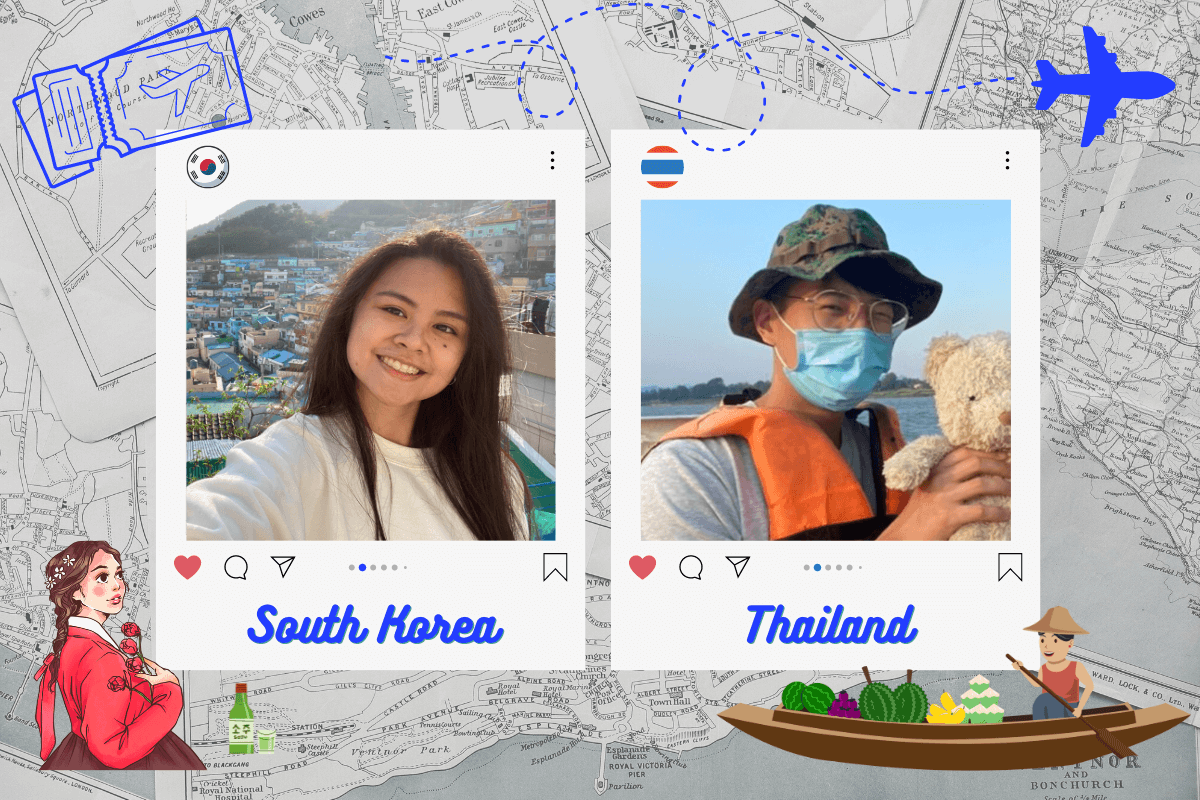
With its rich and unique culture, world-famous cuisines and reputation as a shopping haven, Asia has attracted travellers from all over the globe for decades. Though close to home, Asia is still a popular destination for SMU students looking to gain understanding and experiences in the region. Term Two of Academic Year 2021/22 marked a major milestone when a batch of students ventured overseas on SMU’s International Student Exchange Programme (ISEP) for the first time since the programme was suspended in 2020. While China, Taiwan and the Philippines remained closed to international visitors then, SMU’s Partner Universities (PUs) in Asia such as Keio University, Mahidol University International College, Korea University and Yonsei University had resumed their exchange programmes. Hear from Shanna Gandicela and Dominic Ler, both undergraduates from the Lee Kong Chian School of Business, who share with us their travel tips and experiences. While Dominic has completed his exchange in Thailand, Shanna is still on ISEP in the Republic of Korea at the point of writing.
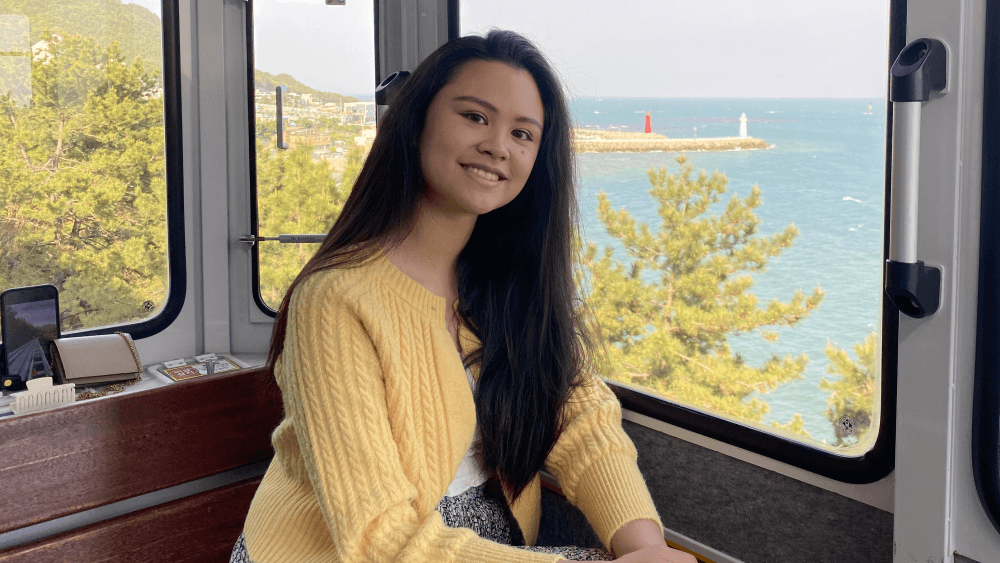
Shanna riding the Sky Capsule at Haeundae, Busan
Shanna Gandicela, undergraduate, Lee Kong Chian School of Business
Host Country: Republic of Korea
Host University: Inha University
What motivated you to go overseas for ISEP, despite the persistence of Covid-19 globally?
Going on an international exchange has been something I’ve always wanted to achieve at SMU. In fact, I had been accepted for ISEP the year before, but the programme was suspended due to the pandemic. Hence, I was really determined to seize the opportunity to go on ISEP this time round to experience what it’s like to learn and live in a different environment.
How would you describe traveling overseas again after not having travelled for some 1.5 years?
I was so excited sitting in my airplane seat. As I don’t get to travel often, I really value every opportunity to travel abroad. It was so thrilling to be able to fly overseas and explore a new environment.
What were some safe management measures taken at your host university?
Classes with 40 students and above were held online at my host university. Inside classrooms, every alternate table had a tall transparent screen and there were temperature screening machines at the entrance to every building. There were sanitisers in classrooms and study lounges, and study rooms could only be booked by students who had verified their vaccination status with the university. These were all imposed on top of the mandatory usage of masks.
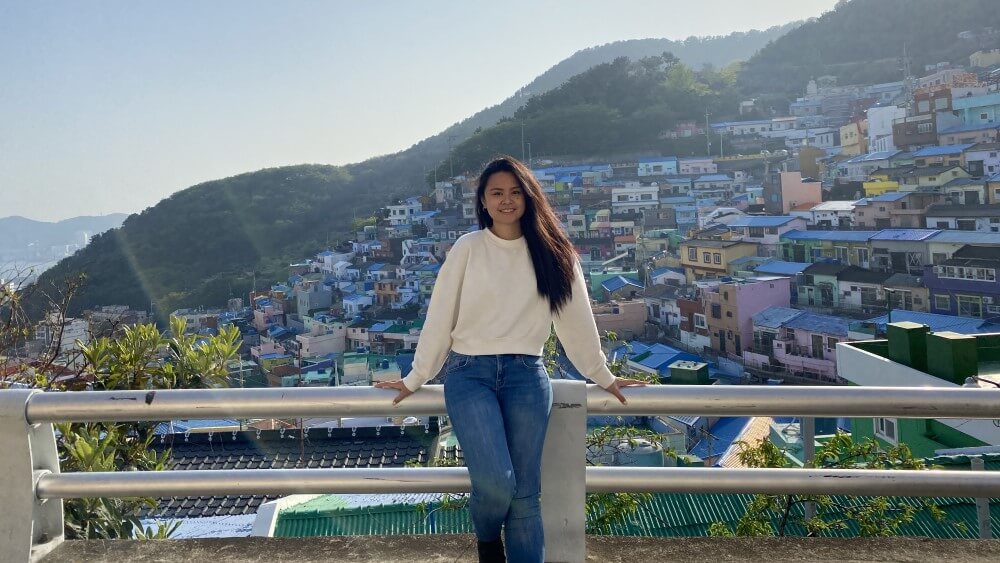
Shanna visiting the Gamcheon Cultural Village at Busan
Given the uncertainty, what additional safeguards did you take when planning for the trip?
Singapore and Korea had a Vaccinated Travel Lane (VTL) agreement in place when I booked my flight, so I was careful to make sure that I had all the required documents to show my eligibility for the VTL so that I am exempted from a seven-day isolation.
Can you share your total budget for the entire term and other related costs?
I set aside S$10,000. I have spent approximately S$580 on return air tickets, S$1,800 on additional trips to explore within South Korea and S$1,600 on rent. Booking accommodations was not easy as I opted to stay at a private rental apartment with a friend rather than the university’s accommodations (i.e., dormitories, off-campus housing) as I wanted to be able to self-isolate if necessary. S$5,000 went to food and necessities. The cost of living in Korea is similar to Singapore’s. But while eating out in Korea is cheaper than in Singapore, groceries such as fruits and vegetables are much more expensive. I’m looking forward to spending what I have left at the end of the term on shopping and souvenirs!
Any last money-saving tips for fellow SMU students who aspire to go for ISEP?
Always make friends with local peers as they will know tips and tricks to save in your host country! Before travelling, look out for non-peak periods so that the tickets are cheaper. So, try to plan ahead by researching the public and school holidays in your host country.
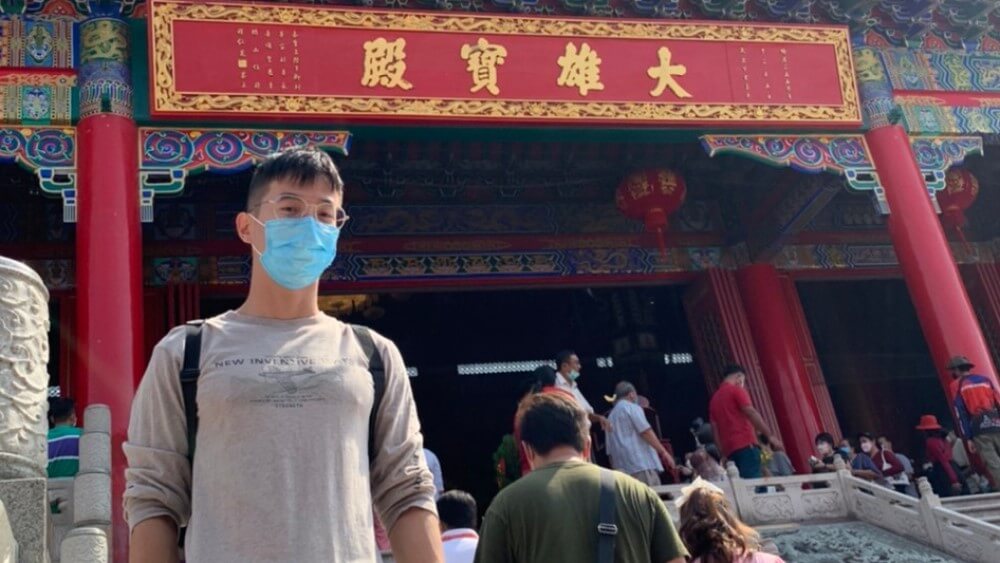
Dominic visiting a popular Thai-Chinese temple in Nonthaburi province in Central Thailand, alongside devotees seeking good fortune during the Chinese New Year period
Dominic Ler, undergraduate, Lee Kong Chian School of Business
Host Country: Kingdom of Thailand
Host University: Mahidol University International College
What motivated you to go overseas for ISEP, despite the persistence of Covid-19 globally?
I was enrolled for an introductory Thai language Course as part of SMU’s Asia Studies requirement in my freshman year. The Course had developed my interest in the language, so I picked up intermediate and advanced Thai on my own. When ISEP was resumed, I saw it as an opportunity to immerse myself in-person in Thai society and make use of my Thai language skills.
How would you describe travelling overseas again after not having travelled for some 1.5 years?
It was definitely different from travelling before the pandemic. The number of travellers at the airports and onboard the plane had significantly reduced. When I travelled to Thailand there was a lot more paperwork to complete before I was allowed to fly and enter the country. I also had to book a one night quarantine package with an ASQ Certified hotel. On top of that the hotel had to be partnered with a hospital to provide the on-arrival PCR test.
What were some safe management measures taken at your host university?
Most lessons were conducted online, with the option to visit the campus for consultations. An ART had to be taken, photographed, and uploaded to the student portal before students were allowed to enter the campus. Examinations were conducted online, and the wearing of masks was mandatory.
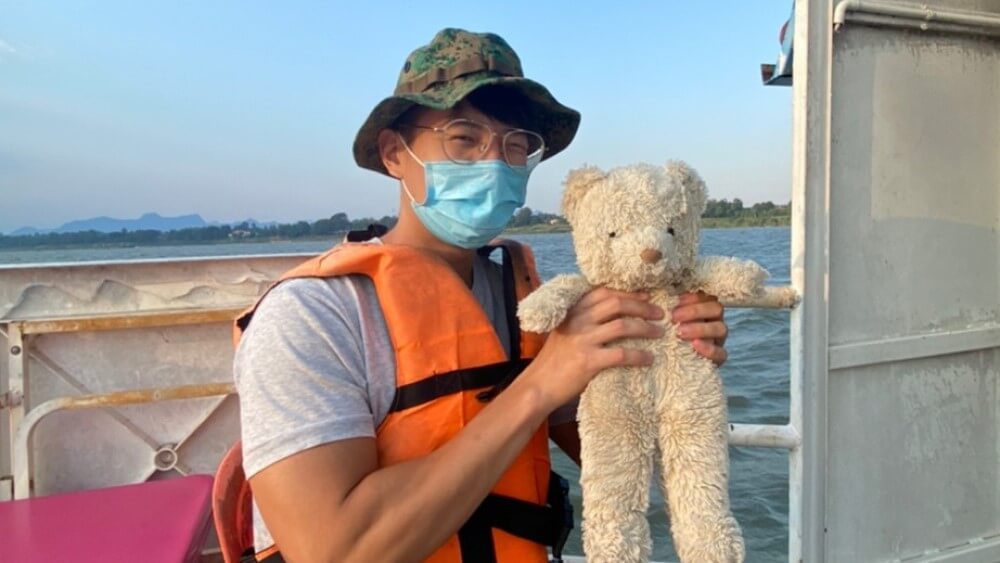
Dominic on a river cruise along the Mekong river at Nakhon Phanom province in North-eastern Thailand, which shares a border with Laos
Given the uncertainty, what additional safeguards did you take when planning the trip?
Prior to setting off, I was mentally prepared that I would not get refunds for my purchases if I did not go ahead with the trip for any reason. I had heard of others who booked flight tickets, quarantine hotel and accommodation nearer to their departure, but this would have meant a mad rush to handle everything right before the ISEP. If you are unlucky, tickets and rooms may even be sold out, like they are now as travel is resuming. Hence, it is necessary to plan major purchases prudently, and to accept a certain amount of risks due to the uncertainty of the situation.
Can you share your total budget for the entire term and some related costs?
I spent about S$400 on return air tickets with extra baggage allowance. I also paid S$160 for a quarantine package based on the requirements at that time. All in all, I set aside roughly S$5,000 for the entire term. Rent was S$320, with utilities costing an average of S$20 every month. An unlimited data plan cost me S$8 per month and I even signed up for a private gym membership during my time there at S$60 monthly.
Any money-saving tips for fellow SMU students who aspire to go for ISEP?
Picking up the local language will really help you to save. Because I knew Thai, I could browse local property listing websites for lower rents, read receipts and menus printed in the local language and compare the price quoted to locals and request for the same. I am sometimes offered even lower prices after a good conversation with the vendors! I was able to speak to the bus conductors and this enabled me to figure out the local bus routes. So, a trip that would have cost S$16 by taxi only cost me S$1 by bus. Specific to Thailand, do explore the beautiful countryside and not just the touristy areas which are usually more expensive. I am also keeping my Thai bank account for future visits, as the conversion rate offered by the banks was better than at money changers!
Interested to embark on ISEP? With partner universities in more than 150 cities across 45 countries, there are diverse destinations for different budgets. You may also find more information on awards, grants and scholarships to support you on your academic endeavours abroad here. Matriculate today! Our matriculation window closes 30 June 22.
Effective from 17 March 2022, the newly formed Academic Services and Operations Office had taken over the management of ISEP from the International Office. In line with the lifting of the University’s suspension on SMU-sanctioned travel, we have resumed in-person formats for our global exposure programmes in a safe manner, with the health and safety of students as priority. There are additional measures taken to enable students to navigate the new normal of international travel. As always, we thank everyone for their patience, understanding and support as we ride out these challenging times together.
